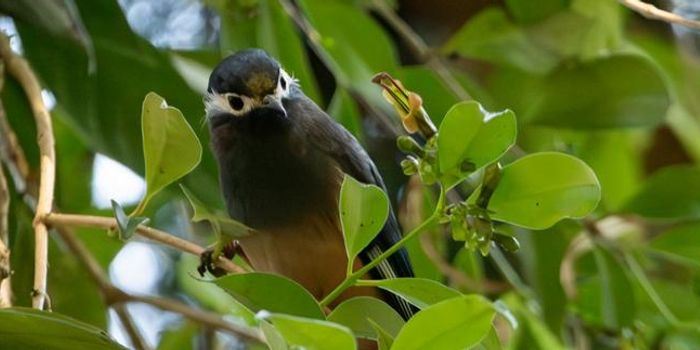Flash Photography Doesn't Seem to Bother Seahorses, Study Finds
There’s no question that many people resort to nature-centric photography as an exciting pastime; but while this activity is mostly harmless to the wildlife in question, some instances can be intrusive and levy unwanted stress on an ecosystem.
Image Credit: Luke Gordon
Two of the biggest no-no’s when practicing nature photography are: 1) handling or manipulating any animals you photograph, and 2) using the camera’s flash function. Both have long been associated with invoking stress responses in wildlife; unfortunately, some amateur photographers like to bend the rules and prioritize their photograph composition over their respect for wildlife.
While it seems evident that these forms of reckless behavior can wreak havoc on wild animals, there isn’t a whole lot of scientific data to support this notion. On the other hand, curiosity is the main ingredient of discovery, and so it shouldn’t come off as too surprising that a team of researchers experimented on their own to learn more. Their findings are now published in the journal Scientific Reports.
Related: Cameras attached to whales can give us a new perspective on their behavior
While nature photography manifests itself in many forms, the researchers limited the scope of their study to that of scuba-diving photographers who often get very close to their subjects. In some cases, scuba-diving photographers will use their camera flash to brighten the light-deprived seafloor or manipulate a slow-moving fish to achieve the perfect camera angle.
After studying the impact of these actions on various types of benthic fish, such as seahorses, frogfishes, and ghost pipefishes, the researchers found that physically manipulating the animals resulted in a noticeable change in behavior. In response to being touched, many fish turned away from the diving photographer or attempted to swim away – both are apparent signs of a stress-induced reaction.
Image Credit: Pixabay
Flash photography, on the other hand, didn’t appear to faze the fish one bit. The seahorses behaved normally both before and after the camera strobe went off, indicating that they were more sensitive to being touched than they were to being illuminated by a sudden burst of light. Adding to the astonishment of this finding was the fact that the researchers used brighter-than-normal strobe lights for their experiment to represent a worst-case scenario.
To test for eye damage, the researchers introduced sea monkeys to the seahorses’ enclosure to discern whether they’d display any complications catching their prey after being flashed by the strobes. Incredibly, they were just as efficient at finding and catching prey as their ‘un-flashed’ counterparts. The team also carefully analyzed the eyes of ‘flashed’ and ‘un-flashed’ seahorses and couldn’t find any signs of eye damage in the ‘flashed’ variety.
Related: It's the male seahorse that gets pregnant, not the female
The findings could have implications for aquariums, which often implement policies against flash photography as a preventative measure for the safety of their animals. However, the consequences are seemingly higher for diving photographers that like to get up close and personal with animals in the wild, as hands-on actions will undoubtedly stress the subject.
Admittedly, the study was limited in its scope. Benthic fish may already be accustomed to flashing lights because of the shimmer of light coming from the ocean’s surface (or in the case of an aquarium, the tank’s surface), but it remains to be seen how other wildlife might react to this kind of behavior on behalf of nature photographers.
Perhaps future studies can close the gap that exists in this sector of scientific research, but only time will tell…
Source: The Conversation, Scientific Reports










